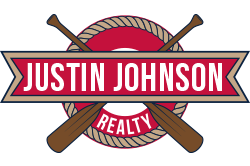What Is Escrow?
If you’re buying a home for the first time, you’ve probably heard the term “escrow” and wondered, What is escrow in real estate, exactly? Whether you’re navigating the real estate transaction steps or reviewing your closing costs, understanding escrow is key to protecting your investment and making the home-buying process smoother.
At Justin Johnson Realty, we believe in educating our clients so they feel confident every step of the way. We’ll break down the escrow process, explain its role in a real estate transaction, and answer the most common questions we hear from homebuyers across West Tennessee and the Tri-State Area.
What Does Escrow Mean in Simple Terms?
In real estate, escrow refers to a legal arrangement where a neutral third party, known as the escrow agent, holds funds or important documents on behalf of the buyer and seller until certain conditions are met.
Simply put, it acts as a financial safety net during the real estate settlement. This ensures that no money or property changes hands until all parts of the agreement have been fulfilled.
Why Do You Need Escrow?
- For buyers, escrow holds your earnest money deposit securely until the deal closes.
- For sellers, it ensures the buyer can’t access properties or ownership rights until funds are properly transferred.
- For lenders, it provides confidence that everything from the title search to contingency requirements, is being handled correctly.
The Escrow Process Explained
Here’s a breakdown of what typically happens during the escrow timeline in a home purchase:
Open Escrow
After the buyer and seller sign a purchase agreement, an escrow account is opened. The buyer deposits earnest money in escrow.
Title Search & Inspection
The title company performs a title search, and home inspections take place. Any issues or contingencies must be addressed.
Appraisal & Loan Finalization
The lender orders an appraisal and begins final approval of the mortgage.
Escrow Instructions
Detailed terms for closing are issued and reviewed by all parties.
Final Walkthrough & Closing Disclosure
The buyer performs a final walkthrough, and closing documents are prepared.
Close Escrow
When everything is verified, funds are transferred, and the property escrow is released. The buyer receives the keys, and the seller receives payment.
This structured process protects everyone involved, and your real estate agent and title company play critical roles in making it seamless.
How Long Does Escrow Last?
The escrow timeline varies depending on the complexity of the transaction and how quickly financing and inspections are completed. On average, escrow lasts 30 to 45 days from the time the purchase agreement is signed to the official closing.
Your agent at Justin Johnson Realty will help you stay on schedule by coordinating with your lender, title company, and escrow officer.
Who Pays Escrow Fees?
Escrow services are not free, and escrow fees and costs are typically split between the buyer and the seller, though local customs may vary. These costs can include:
- Escrow service fees
- Wire transfer or courier fees
- Notary charges
- Title insurance fees (separate but often managed during escrow)
We ensure transparency on all closing costs early in the process, so there are no surprises when it’s time to close.
What's the Difference Between Escrow and Title Insurance?
Though often discussed together, escrow and title insurance serve different purposes:
- Escrow manages the flow of funds and documents.
- Title insurance protects you from future claims or disputes over property ownership.
Both are essential in a safe real estate transaction, and Justin Johnson Realty works closely with trusted providers in the region to handle both aspects with care.
What Happens After Closing?
Once the transaction closes, your lender may continue to manage part of your payment through an escrow account, also called a lender escrow account. This is used to collect and pay property taxes and homeowners insurance on your behalf.
This built-in savings plan ensures that your major housing expenses are covered on time, without the need for large, lump-sum payments.
Can You Back Out of Escrow?
While the goal is always to close, there are situations where a buyer or seller may choose to exit the deal. Depending on your contingencies (such as financing or inspection clauses), it may be possible to back out of escrow without penalty.
However, if you cancel outside the terms of your agreement, you may lose your earnest money in escrow. That’s why it’s important to work with a local expert who understands your rights and obligations.
Is Escrow Refundable?
It depends. If the transaction is canceled for reasons outlined in the contract, like a failed inspection or financing issue, the buyer may receive a refund of the earnest money.
But if the buyer simply changes their mind or fails to meet agreed-upon deadlines, the escrow deposit may be forfeited to the seller. Always review the escrow instructions carefully, and consult your agent if you’re unsure.
Why Escrow Matters in Today’s Market
In fast-moving markets like those in West Tennessee, having a secure, reliable escrow process is more important than ever. Escrow keeps real estate transactions honest, accountable, and structured, especially when multiple parties are involved.
At Justin Johnson Realty, we’ve helped hundreds of clients navigate the escrow closing process with confidence. Whether you’re buying your first home or selling your forever home, our local knowledge and hands-on guidance make the difference.
Thinking About Making a Move?
Buying or selling a home is one of the biggest financial decisions you’ll make. Understanding what escrow is, and how it works, ensures your real estate journey is protected from start to finish.
If you’re preparing to buy or sell in West Tennessee or the Tri-State Area, trust Justin Johnson Realty to guide you every step of the way, from earnest money deposits to escrow closing and beyond.
Contact Justin Johnson Realty today for personalized advice from experienced professionals who know the local market, and care about your goals.
